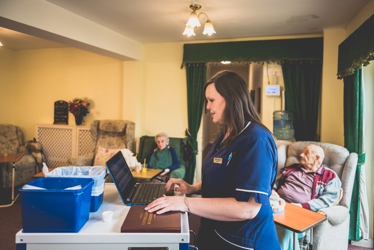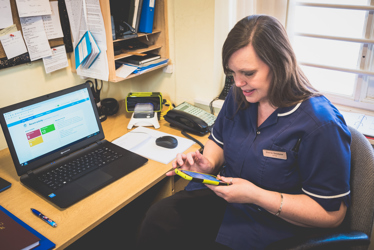Blog

CQC Quality Statements
Read Article on CQC Quality Statements
Guide to Safe Staffing and Regulations in Care for UK
Read Article on Guide to Safe Staffing and Regulations in Care for UK
Care Home Occupancy - Why Is It Important?
Read Article on Care Home Occupancy - Why Is It Important?
Care Home Software - How Long Does It Take To Implement?
Read Article on Care Home Software - How Long Does It Take To Implement?
How to Become a Registered Care Manager
Read Article on How to Become a Registered Care Manager
Care Home Audits – What are the Key Principles to Follow
Read Article on Care Home Audits – What are the Key Principles to Follow
Regulators for Standards in Health and Social Care
Read Article on Regulators for Standards in Health and Social Care
What Is The CQC - What Does CQC Mean And What Does It Do?
Read Article on What Is The CQC - What Does CQC Mean And What Does It Do?
Technology-Enabled Care in Home Care Services
Read Article on Technology-Enabled Care in Home Care Services
How to Start a Home Care Agency
Read Article on How to Start a Home Care Agency
A Guide to Risk Based Auditing
Read Article on A Guide to Risk Based Auditing
Sustainability in Health and Social Care
Read Article on Sustainability in Health and Social Care
Cultural Competence in Care - A Guide for Care Workers
Read Article on Cultural Competence in Care - A Guide for Care Workers
Winter Fuel Payment in the UK: What Care Providers and Families Need to Know
Read Article on Winter Fuel Payment in the UK: What Care Providers and Families Need to Know
How to Market a Domiciliary or Residential Business in the UK
Read Article on How to Market a Domiciliary or Residential Business in the UK
Cost Control Software Care Homes UK
Read Article on Cost Control Software Care Homes UK
Empowerment in Health and Social Care
Read Article on Empowerment in Health and Social Care
HIQA Health Information and Quality Authority Guide
Read Article on HIQA Health Information and Quality Authority Guide
Independent Care Solutions
Read Article on Independent Care Solutions
How Can Care Management Software Help with Body Mapping
Read Article on How Can Care Management Software Help with Body Mapping
Digital Care Planning Software: What it is and How to Choose One
Read Article on Digital Care Planning Software: What it is and How to Choose One
Care Tutor vs My Learning Cloud vs Access Learning for Care
Read Article on Care Tutor vs My Learning Cloud vs Access Learning for Care
Equality and Diversity in Health and Social Care
Read Article on Equality and Diversity in Health and Social Care
Confidentiality in Health and Social Care
Read Article on Confidentiality in Health and Social Care
HSC - Practical Cost-Saving Advice for Staying on Top of Compliance in Care
Read Article on HSC - Practical Cost-Saving Advice for Staying on Top of Compliance in Care
Should I Aim for Outstanding – What are the Costs and Benefits?
Read Article on Should I Aim for Outstanding – What are the Costs and Benefits?
Technology in Care Homes
Read Article on Technology in Care Homes
How AI Can Transform Your Care Planning Process
Read Article on How AI Can Transform Your Care Planning Process
Reflective Practice in Health and Social Care
Read Article on Reflective Practice in Health and Social Care

 AU & NZ
AU & NZ
 SG
SG
 MY
MY
 US
US
 IE
IE